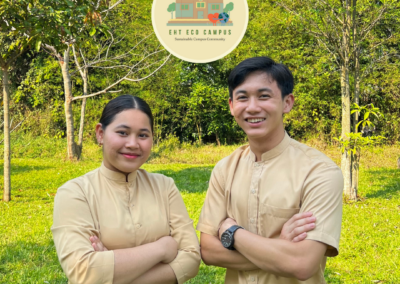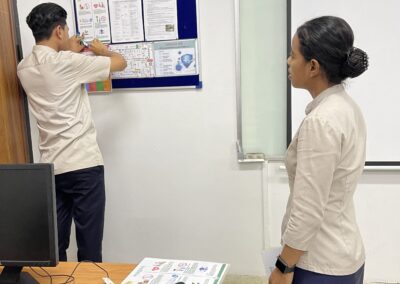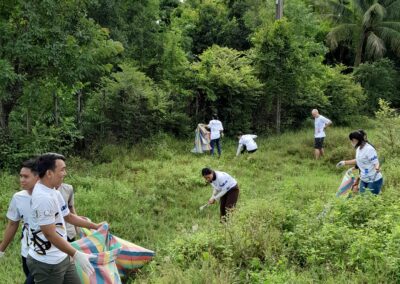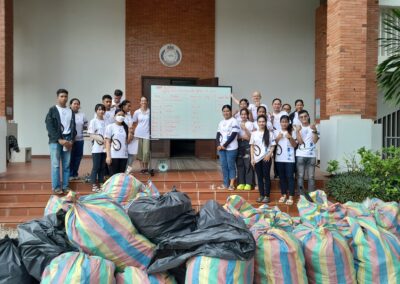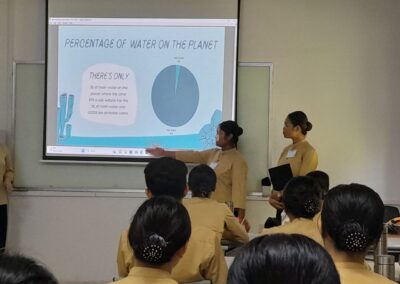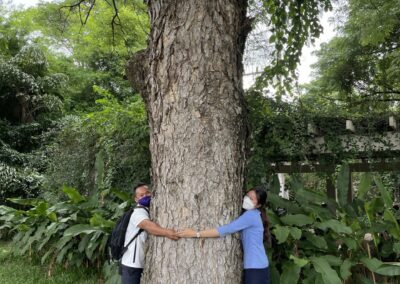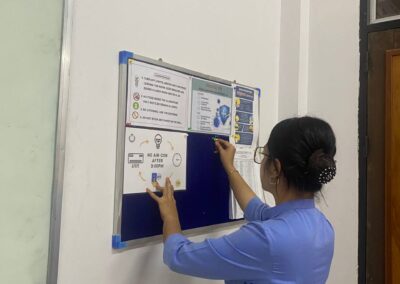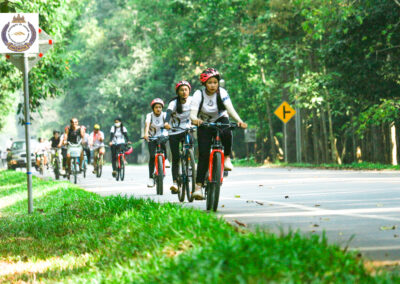8 THEMES
Health and Well being
Equity and Equality
Pollution & transport / Climate change
Biodiversity
Education, Communication & Global Citizenship
Waste Management
Resources Consumption & Water Sanitation
Food & supply chain
WHOLE-INSTITUTION APPROACH
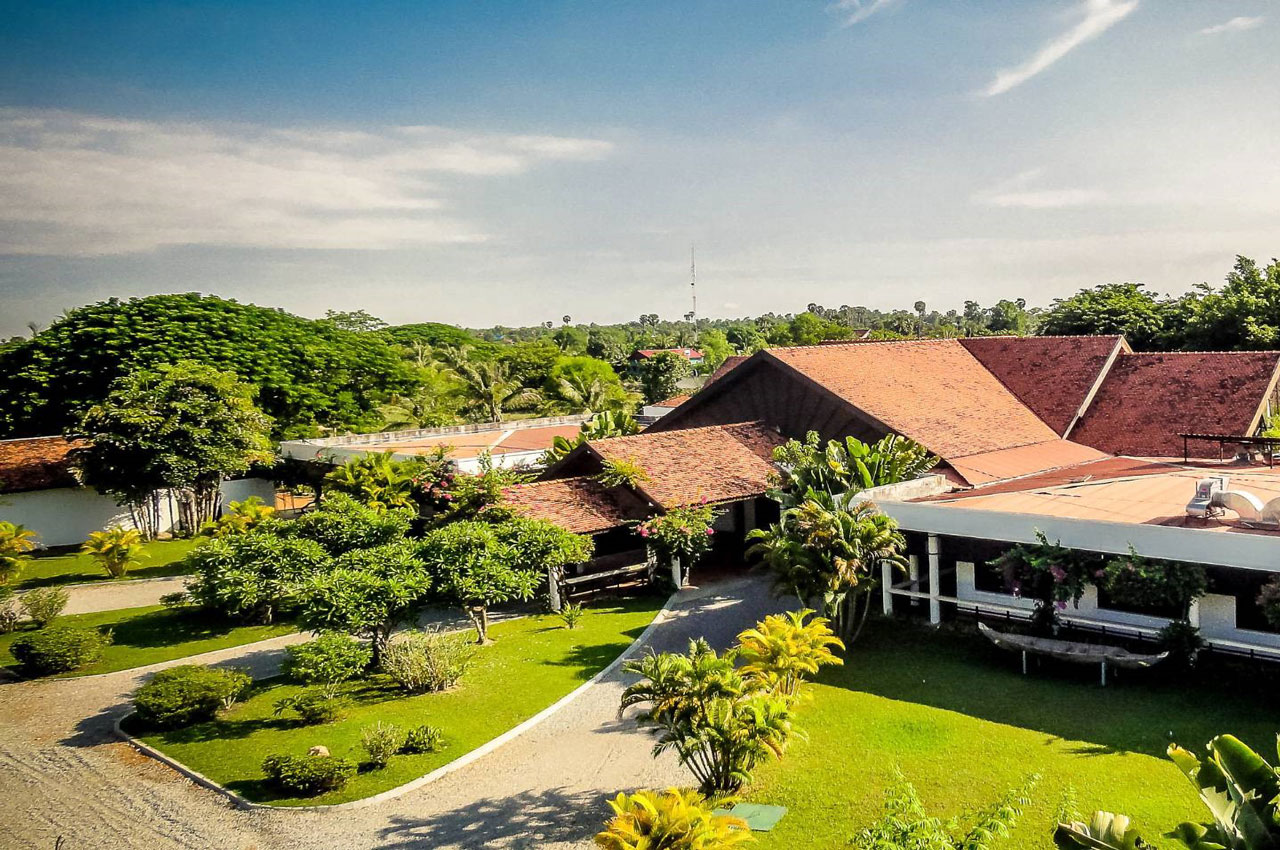
- Encourages innovation and change, reducing associated costs.
- Empowers students and staff to become leaders for positive impact.
- Prevents and reduces environmental impact.
- Access to a wide network of campuses and people to create new connections.
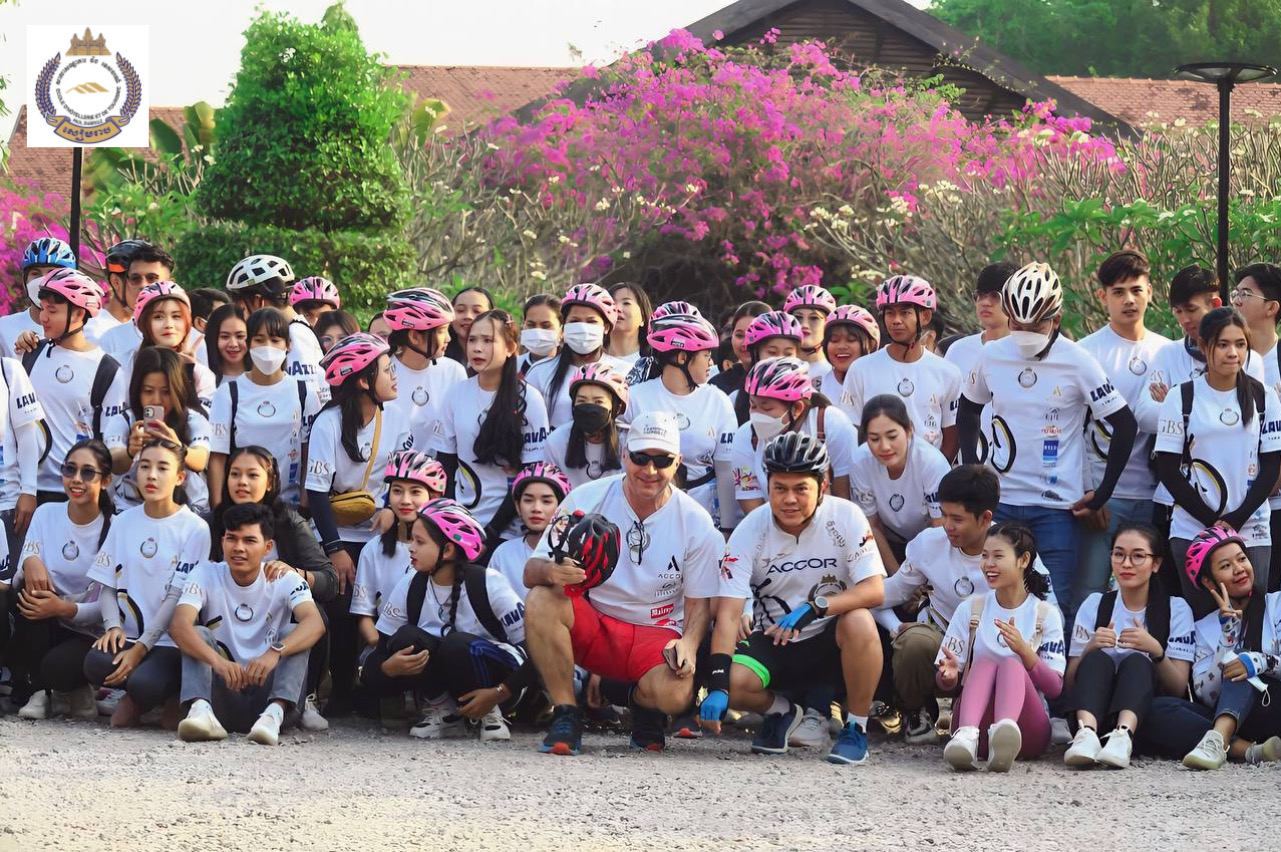
- Learn-by-doing approach.
- Fosters students’ responsibility and autonomy to learn and apply new skills.
- Develops transferable skills (communication, teamwork, problem-solving, committee servicing).
- Inspires practical sustainable actions to replicate outside of the school.

- Sustainability impact in various areas is quantified to integrate key performance indicators and targets to enter a continuous improvement cycle.
- Improves biodiversity on campus, waste management, and resource consumption.
- Lowers institution and stakeholders’ carbon footprint.
- Improves overall environmental performance.

- Activities facilitate students’ and staff’s involvement with the city and local communities.
- Sets an example in the local community.
- Creates a network, linking activities to other projects in Cambodia and beyond.
- Involves local groups and representatives facilitating sharing experiences and best practices.
ACTIONS TAKEN
Ecoschool Project
In 2023, we became the first vocational training school in the world to receive the Green Flag from the Foundation for Environmental Education (FEE). In 2025, we aim to earn this Green Flag again, further solidifying our commitment to the environment and sustainability.
Members well-being
EcoCampus is also a human-centered approach, placing the students at the core process of change toward sustainability that is connected to the real issues in their communities. The Eco-Committee is composed of a majority of students including the Chair and Vice-Chair.
Green Days
Together the students and staff organize events to clean strategic areas of Siem Reap to fight plastic pollution and protect biodiversity. In addition, many other awareness events are organized to familiarize the local community with multiple sustainability efforts such as gender equality, waste management, and more.
Resource consumption
We apply various strategies to reduce our electricity consumption, food waste, and plastic use. The students actively design and carry on activities to raise awareness and enable positive change. For example, the distribution of reusable metal water bottles to all EHT members.
Water Collection
Rainwater is collected and filtered to be re-used for cleaning purposes and to provide drinking water across the campus.
Plastic Free Initiative
EHT implements a zero single-use plastic policy and works to reduce its plastic use by raising awareness and embracing green practices in our supply chains.
Vegetable Garden
Production of monthly green vegetables that are used for consumption at our canteen and training restaurant.
Inclusion of the organic garden in the teaching curriculum to better understand the whole food supply chain from farm to plate.
